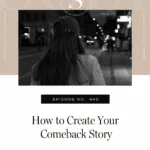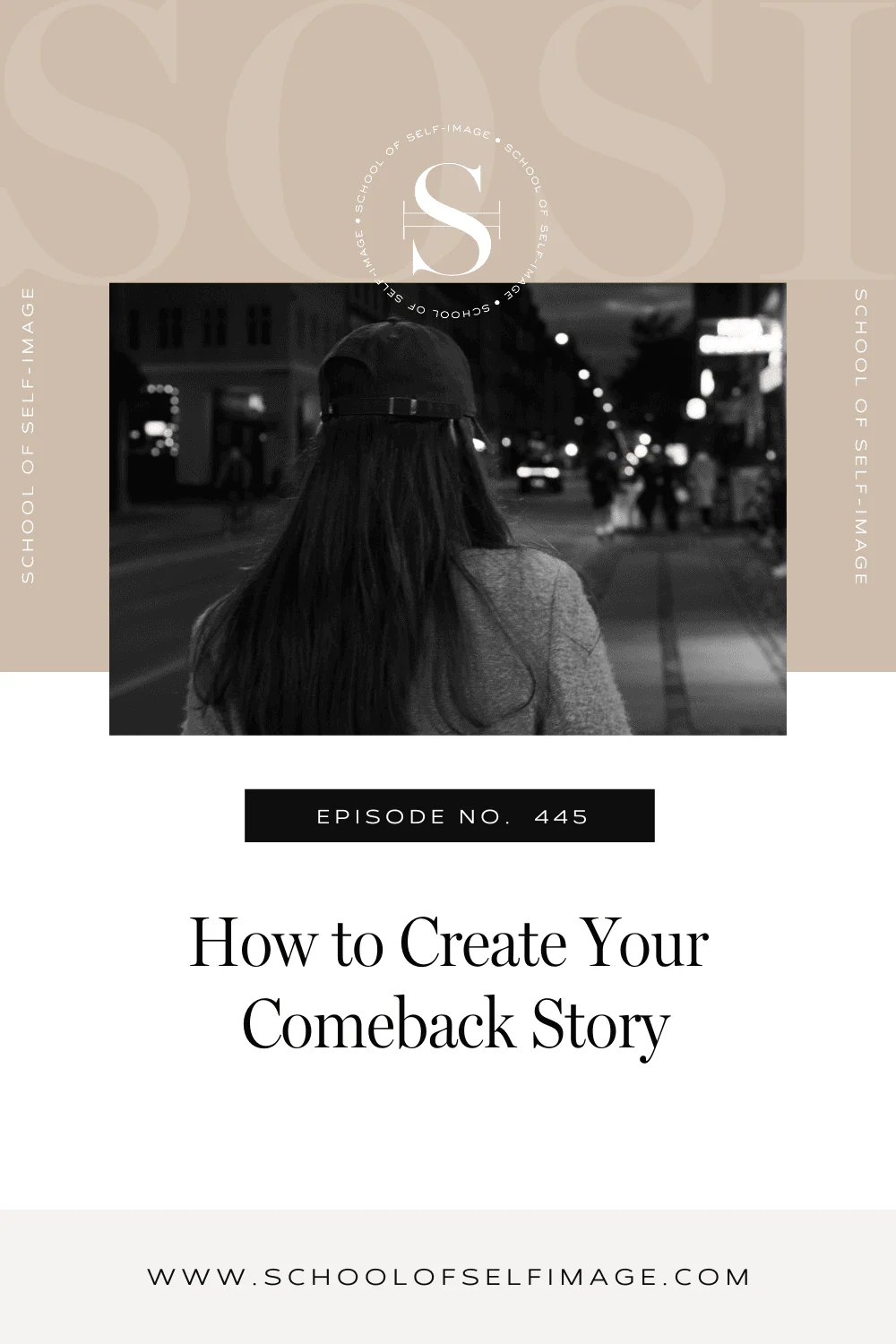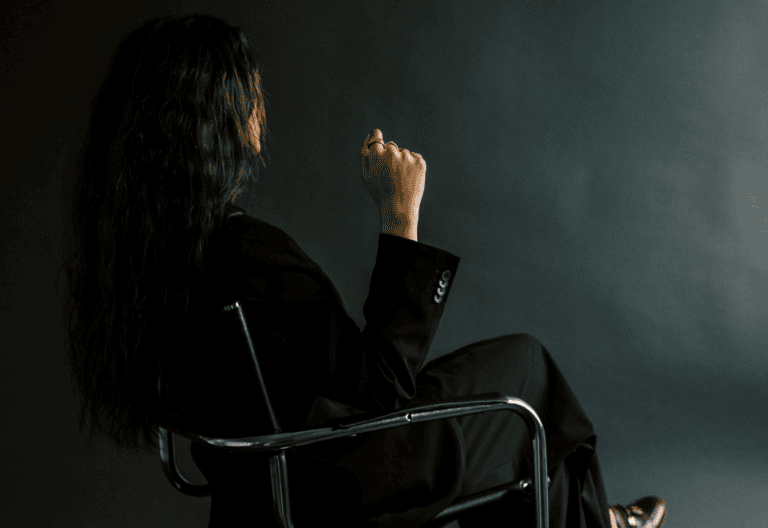

The Change Cycle: How to Bounce Back Better Than Ever
Setbacks are an inevitable part of life. While they can feel overwhelming, they also present unique opportunities for growth and transformation. Embracing the emotions that accompany these challenges is crucial for moving forward effectively.
Host Tonya Leigh shares insights from her recent quarterly retreat with her leadership team. She emphasizes the importance of regular check-ins to maintain momentum and accountability in both personal and professional growth. Tonya discusses the inevitable setbacks we face in life and how they are essential for appreciating the highs and teaching us valuable lessons. Whether you’re currently thriving or facing challenges, this episode serves as a reminder that lows can help us shed what no longer serves us and pave the way for renewal and growth.
Tune in for an uplifting conversation that encourages self-reflection and resilience.
Episode Details:
01:08 – Importance of Regular Touch Points
03:05 – Feeling Hopeless and Needing Tools
07:03 – Allowing Yourself to Break Open
10:14 – Identity Crisis and Letting Go
18:19 – Creating a Desire List
22:14 – Choosing One Focus
25:08 – Dealing with Imposter Syndrome
28:04 – Falling in Love with the Process
32:08 – Internalizing a New Self-Image
34:42 – No Timeline for Your Comeback
00:35:58 – Comeback Challenge
Useful Resources:
- Click HERE to join the Membership
- Click HERE for a FREE download
- Click HERE to sign up for our weekly newsletter, The Edit
Connect with Master Life Coach Tonya Leigh:
- Click HERE to follow our Instagram
- Click HERE to visit our website
- Click HERE to visit our Facebook group
- Click HERE to follow our TikTok
- Click HERE to subscribe to our YouTube channel
Episode Transcript:
Let me ask you something. Have you ever found yourself in a season of your life where it just feels like everything is falling apart? Maybe it’s a breakup that you’re going through or you receive a diagnosis or you’re just hitting obstacle after obstacle and it feels like you just can’t overcome it, and you’re not even sure of who you are anymore, let alone where you’re going. Maybe it’s you feeling like your life no longer fits, but you’re not quite sure what does. Well, in this episode, I’m going to share a very useful framework that I have used for years to understand the cycle of change so that I can continue to reinvent myself and keep the momentum going in my life. If this resonates with you, you are going to love today’s episode. Without further ado, my friend, let’s dive in.
Welcome to the School of Self-Image, where personal development meets style. Here’s your hostess, master life coach, Tonya Leigh.
Good morning, my friends, or good afternoon, good evening, whenever you’re listening to this. I hope things are good. I’m actually up early because my team is in town and we have been meeting for a quarterly retreat. So every three months my leadership team flies in and we have the best time, talk about joyfully hustling. We play games. We laugh a lot. We go to dinners. We go for walks, but we also get some work done. We spend a day really looking at the last quarter, looking at our own growth, looking at some of our failures, and we recommit. We redesign. These quarterly retreats have been an amazing tool to keep the momentum going because I talked about it in last week’s podcast, but often what happens is you start the year out and maybe it’s you with you thinking about your personal life or maybe it’s you with your team and you set all of these goals and then without regular touch points, it’s easy to get off track. It’s easy to let that energy fizzle, and so having these quarterly touch points have been so incredible, so good.
Now, let’s talk about today’s topic. If you are someone and your life is going really well right now and you’re excited and you’re on fire and you are ready, then just save this episode for a future time because inevitably you’re going to need it. In life, we all have setbacks. It’s part of the experience. You can’t appreciate the highs without the lows. The lows are there to teach us. The lows are there to burn parts of us down that no longer serve us, and they’re just a part of life.
I ran into an old friend the other day that I haven’t seen in years, and she was telling me that she’s had a really, really rough she couple of years, she lost her job. She has recently found out that her husband is having an affair and one of her parents is sick. It’s like everything is happening all at once for her. On top of that, she was like, “Tonya, I just haven’t been taking care of myself, so I feel physically terrible.” It reminds me of many of my members who are in the school that come in and they’re just at a point of something’s got to change.
Listen, I’ve certainly been there. I know what it’s like to feel like you’re at rock bottom and to feel like there’s no hope, to feel like you don’t know what to do, where to go. You can feel hopeless. You can feel scared. You can feel stuck, and it’s in those moments that you need tools because with the right tools, this setback isn’t a detour, it’s actually an invitation, and that’s what I want to talk to you about today and one of the best frameworks that I have ever read, studied, learned, and applied that really supports change because that’s what setbacks are. They are asking us to change, where change is being forced upon us because a setback is usually the result of a failure or a plot twist that you weren’t expecting.
Maybe you get a diagnosis out of nowhere. Maybe your best friend breaks your heart. Maybe a project that you had so much faith in and hope in is a complete failure. There are so many ways that life can surprise us with unexpected things that feel really hard. So I want to present to you a tool that has really, really supported me, that’s allowed me to come back from setbacks and not only come back, but come back better than ever. That’s the intention that I want you to hold for yourself. One of the quotes from Abraham Hicks that I love is the harder the fall, the higher the bounce. So if you’re falling right now, just know if you don’t fight it, if you don’t resist it, if you just allow the universe to work on you, you are going to bounce back higher than ever.
So the tool that I’m referring to is from Martha Beck. For those of you who don’t know, I trained with Martha Beck. I love all of her books. I love her sense of humor. I love the way she sees the world. Her tool that we were taught in coach training is called the change cycle. There are four… She calls them squares. I like to call them stages, but there are basically four stages. The first one is called death and rebirth. If you are in the middle of a major or not even major, it could just be a minor setback, it feels bad too, this is where you are, death and rebirth. What this stage feels like is numbness, disbelief, emotional exhaustion, fear, anxiety, worry. You can feel lost. You can feel disoriented. You can feel a lot of confusion. Often in this stage you try to stay strong while quietly falling apart.
This might be the stage where you wish you could just run away from your life. You just want to ignore. You want to deny. You want to pretend that everything’s okay when your heart and soul knows that it isn’t. You can call this the stages of reinvention because this is often what precipitates a reinvention is that you have had a setback. Something’s not working in your life. You know something has to change, and yet you may find yourself resisting that change, wanting to go back to the way it was, wanting things to be different than what they are right now and that’s exhausting. I love what Martha Beck says about the stage. She’s like, “The mantra for this stage is I don’t know what the hell is going on and that’s okay.”
When you are in stage, one of the things that I actually suggest is to allow yourself to break open. I remember years ago I was having a major, major setback in my life, but when people would ask me, “How are you doing?” I would just say, “I’m fine. I’m fine.” I tried to put on this facade that everything was okay, and the pressure that that created in my life was… It was something that I couldn’t continue to hold. It was like a champagne bottle. Everything looked good on the outside, but every time I’m fine was said, it was like I was shaking the bottle until one day the cork popped and I burst, and thank God I did because that pressure had to release. The reason why I burst is because a friend called me out. She knew what I was going through and she said, “Tonya, you’re not fine. You need to stop pretending. It’s okay to be human.” Just having someone to hold space for me to break down was as cliche as it is, it was the beginning of a major breakthrough.
So when you’re in stage one, it’s important to allow yourself to feel, to cry it out, to collapse on the couch. Watch Sex in the City, watch whatever your show is. Just allow yourself to just be in it, to allow yourself to feel, because if you don’t, you’re going to lose access to the very thing that’s going to get you into the next stage because what you need to come to terms with is, “What is going on for me? What am I actually feeling?” You want to look at what was the setback. You need to assess things. What was it? What happened? How did I contribute to it?
I love journaling. I love journaling when things are great and when things aren’t so great, but this is a time where you need to grab your journal and you need to start going within. Ask yourself, “What is being called to fall away from my life and why is this a good thing?” You can even talk to the setback. “What do you want me to know?” You can begin to burn old identities through a letter, through a ritual, through a wardrobe clear out because that’s what’s really happening in square one. It’s an identity crisis. The you that you were before is not going to be the same you that comes out of this. You are being asked to let go of the limiting beliefs. You’re being asked to let go of old ways of being, old ways of doing so that you can emerge as a new you and that will never happen as long as you’re resisting what is. What you resist persist. What you fight grows.
So in square one or stage one, it’s so important that you allow yourself to feel, and it’s not fun. It can be an awful experience, but it’s what’s required. Aren’t you willing to feel awful for a bit in order to feel amazing? Because that’s the crazy part about life, it’s all about duality. It’s all about contrast. How can you feel amazing if you’re not also willing to feel awful? You have to be willing to feel all of it and when you do, life really does become magical. That’s when you get momentum. You’re not afraid to feel emotions. You’re not afraid to go within yourself and figure out, “What is going on right now? Why am I feeling so afraid?” Well, maybe you’re telling yourself, “I don’t have what it takes.” Why are you feeling so hopeless? Maybe you’re telling yourself, “I’m never going to find another person like the one that just left.” These are all just thoughts, but as long as you resist stage one, as long as you’re not willing to feel, you’ll never be able to access the thoughts that are holding you back from your comeback.
Consider stage one to be the season of identity death. The roles you played, they’re crumbling, let them crumble. This is the phase of endings, of breakdowns and the dissolving of parts of your identity. The reason why this part is often so uncomfortable and scary is that the old life is falling apart and the new life hasn’t arrived yet, so there’s this void, but it’s important to surrender to the unknown rather than resisting it. When your old life is crumbling, whether it’s your relationships, your job, your body, your belief system, your identity, your natural instinct will be to grip harder, to hustle for clarity, to fix it, to push away your discomfort, but that only prolongs the pain because what’s actually being asked of you in this moment isn’t action, it’s surrender.
I want to be clear that surrender is not giving up. It’s not losing. It’s not becoming passive. It’s not admitting failure. I think that’s why a lot of people don’t want to surrender because they’re like, “Oh my God, if I surrender to this, then it means nothing will change.” Surrender is just letting go of the illusion of control. It’s accepting what is right now and creating space for something entirely new to emerge. I like to think of it as like a sacred pause before the next breath. It’s the moment of falling before the wings appear. So if you’re in square one right now, if you are in the middle of your setback, just surrender to it. Allow yourself to break down, to cry, to be with what is so that you can then create what can be, and that’s when you start you easing into square two. This is such a fun stage. It’s called dreaming and scheming.
The mantra for this stage is there are no rules and that’s okay. You will know that you are ready for stage two when you start to feel a little bit of possibility, a little bit of relief, a little bit of hope. It’s like that feeling when you’ve cried, maybe had an all-nighter where you just bawled and you wake up the next day feeling so fresh even though your eyes are puffy. It’s like you’ve cried the tears and now you’re ready. You’re ready to move on. You’re ready to finally accept and step into the next part of your life. That’s what it feels like. The mantra for this stage is there are no rules and that’s okay. This is the phase of creative possibility and reinvention. You start to imagine a new life free from the constraints of your past identity. There are no rules here, just intuition, a lot of experimentation and vision.
This is when I really encourage people to get out, to go try new things, to expose themselves to new possibilities, to begin to switch things up. Read different books, listen to different people, go to different restaurants. Place yourself in the world so you can begin to imagine and envision again because when you do, you’re going to start to have flickers of inspiration often mixed with some fear. You’re going to have this desire to play, to explore or to rest, and you begin to imagine different versions of your future. So let’s say for example, you’ve lost your job and it was such a shock and you spent maybe weeks or maybe months… There is no timeline to this. We all are on our different timelines, but you spent some time in stage one and now you start to think, “Okay. I can’t stay in stage one forever. I’ve cried. I’ve processed. I’m ready. I’m ready now to begin to look at what’s possible.”
This might be when you start contemplating a whole different career. Maybe you start contemplating going back to school. Maybe you start talking to people and being curious about what do you do? What do you love about your work? What don’t you love? You begin to place yourself in the possibility of your dreams and imagining different versions of a potential future. You also are going to feel vulnerable or unsure if you’re allowed to want more, and the answer is you are. That setback happened so that you could release what was holding you back from the next level. This isn’t just about more of the same. If you want to have a comeback, don’t expect just more of the same. Always approach your life of something better.
I love when I envision something. I always say this or something better, allow yourself to want for better, to want for more. Don’t hold back. This is when I love to have members write everything that you desire down. Do a desire list, write it all down. If you desire a mansion, write it down. If you desire a tiny house, write it down. If you desire to get fitter than you’ve ever been, write it down. If you desire to sit by the beach and write books, write it down. Don’t censor yourself. Just allow yourself to be honest with what you want or what you may want. Maybe you don’t know if you really want it, but you think about it and you’re like, “Oh, that could be fun. That could be exciting.” Don’t get into the how. It’s not the stage for that yet. Just allow yourself to dream and scheme.
You can ask yourself, “What would delight me right now?” This might be a time where you create a mood board for your new self. I love to think of this being a time of experimentation, of playful discovery, of allowing yourself to just be curious about yourself and your life. During this stage, I want you to say aloud, “I have decided I am creating my comeback story.” Claim it. Words are powerful, my friends. Your brain is always listening. It is always looking for what you tell it to look for. If you tell your brain, “Hey, listen, we are creating a comeback, me and you together,” and you constantly remind your brain of that, it has no other choice but to get on board.
Now, during stage two, I like to think of this stage as like a winter garden. It looks like nothing is happening above the soil, but deep underground life is organizing itself. This is not stagnation, it’s gestation. I think about so often things in my life are brewing underneath, and then inevitably, six months later or a year later, people will be like, “Oh my God, you’re so different.” I’m like, “Yeah. Because I’ve been in stage two. I’ve been just allowing myself to play with the next versions of me. I’ve been allowing myself to dream and scheme about what’s next. You’re just seeing all of the work of the last six months to a year, but it was brewing underneath the ground all of that time.”
Now, this is where your next level self-image begins to form. You are designing her energetically before anything physical changes. This is your time to dream and color and listen for the woman that you’re becoming. This is why I love visualizations during this time. If you’re in the membership, you all, there’s a whole resource of visualizations. Go check them out. Find the one that really speaks to where you are right now because visualization is powerful. I often say the brain knows two things, the words you speak and the images you hold. When you begin to speak on purpose and hold those images in your mind, you are shaping your reality. So during stage one, it’s important that you ask this, “What kind of woman would I be if I gave myself permission to want this?”
Now, once you’ve gone through stage two, you enter into stage three, which is considered the hero’s journey. The mantra for this stage is, “This is harder than I thought it would be and that’s okay.” This is the action phase. This is when you begin to test and try and fell and refine. It’s also the stage where most people give up. Growth doesn’t feel glamorous here, but this is where your confidence is created. Now, for stage three, there are some things that I do recommend that you do for your comeback. One, you need to get clear on what you are going to create. Within the membership, I suggest one focus. Now, it doesn’t mean you don’t have other things that you’re doing and maybe other goals, but one goal that would signify I am different.
It’s going to require a different version of you. It is something that delights you and also equally terrifies you. Giving yourself that one focus is powerful because so many people don’t reach their goals because they have too many. Their energy is scattered and they feel like they’re going in circles. That’s why I always recommend, especially when you’re first starting out on this journey, to choose just one. It’s also the time where I highly suggest that you audit your environment. This is when you want to begin to rearrange your environment to reflect back to you who you’re becoming, not who you’ve been, everything from the people you hang out with to the clothes that you wear, to the books that you read, to the places that you go. Create that supportive environment to allow you to reach your goals quicker, to decrease the friction that can slow you down.
Another simple thing that I would recommend during stage three is if you’ve had a really big setback and you’re wanting to get your life together… This is so simple and yet so hard at the same time, but I’m telling you, if you do this for 30 days, it’s going to change your life. For 30 days in a row, get up first thing in the morning and get moving. I want us to think about why this is so important. Number one, it signifies to the universe, “I am a woman in motion. I am going forward. I’m not staying stagnant. I’m not staying stuck.” So that’s really powerful in and of itself, but also I just know the tendency from going through this so many times, often what happens is we become sluggish and we start to feel terrible physically.
Most people, especially in stage two, aren’t taking care of themselves that well. They’re abandoning their self-care and they start to just feel heavy. They start to feel low energy. This is when we start getting our energy back. It can start happening in stage two. Emotionally, you start getting your energy back. But stage three, it’s like this is when you start proving to yourself, “Not only am I a woman in motion, but I’m also a woman who takes care of herself.” That can create so much confidence. It can create so much momentum. I’m telling you all for 30 days, do this, 30 minutes first thing in the morning, get moving, go for walks, go to the gym just for 30 minutes. It’s powerful.
Now, in this stage, I want to go ahead and give you a highlight of most likely what’s going to happen. You’re going to experience imposter syndrome. Why? Because you are catching up with your new identity. I call this the awkward in between, and nothing has gone wrong here. It’s part of the process, but you’re going to have thoughts like, “Who am I to do this?” You’re going to have this belief most likely that people are going to find you out. What are they going to find out? That you’re changing? That you’re not a woman that stays the same? But you’re going to have all kinds of thoughts. When this is happening, the way I like to think of it’s a battle between the old self and the new self. If you want the new self to win, you got to feed her, nurture her. Stop giving so much time and attention to the old self. Eventually, she’s going to go away.
But I like to think of it, especially when it comes to self-image work, that this is when you get to practice it until you become it. But when imposter syndrome comes up, just know that this is normal. You’re also going to be trying new things and hitting resistance, hitting obstacles. That’s also very normal. You may also find yourself overthinking, over-analyzing, comparing your progress. Again, it’s all very, very normal and this is when you need tools. Now, if you’re in the membership, do you know what’s going to be most supportive of you during stage three? The self-image studio process and coming to our monthly studio sessions, because this is all about how we create results 30 days at a time, and we address all of this, every single one.
It’s why our members get such extraordinary results, because we keep the momentum by understanding change and by those regular touch points. It’s just like I was talking about at the very beginning of the call with my team, having those quarterly touch points, you keep the momentum going. You don’t get bogged down with the BS, you’re able to clean it up quickly. Now, imagine doing that for your life every 30 days. That’s what we do within the membership. So for you, you just want to continuously… It’s almost like going back and forth between stage one where you’re dissolving beliefs, and then stage two where, “Okay. Let me dream up of a new scenario. Let me dream up of what’s possible,” and then back into stage three where you’re taking action on that.
But here’s the thing with stage three, it’s like The 5 AM Club. No one’s clapping. You’re probably exhausted, but you keep showing up and that’s what creates momentum. You all, I am so convinced that I have created success just because I am stubborn and I’m persistent. Maybe it’s the Capricorn in me. Also, I love what I do. My why is big, and I didn’t even put that in here, but I think that’s really important. You need to have a big why. Why do you want to go after this? Why is this so important to you? How is this going to make your life and the world a better place? How is this going to benefit your family? Whatever you need to discover to really dig deep into that compelling reason, it’s important because if you don’t have that big why, it’s going to be so easy to give up and just go back to the old self, but when you have that big why… I think for me, I have truly fallen in love with the process and I think that’s so important.
Most people fall in love with the outcome and then they’re upset all of the time because the outcome’s not yet. When you fall in love with this process, that’s when you show up day after day. Even when you’re not seeing results yet, even when it’s hard, you just keep showing up because you know that this is just making you better. It’s just making you stronger. It’s just making you wiser, and that is worth all of it. So during stage two, this is when you are taking action. It’s repetition, not perfection, and that is what builds your power. This stage is when you are embodying a new identity. It’s not just action, it’s action of coming from a new you, because remember, you started dissolving these beliefs that were holding you back in stage one. You started dreaming of a new way of being, of a new future, which to create something you’ve never had. You have to become someone you’ve never been.
So in stage two, you are taking action, as well as embodying a new identity before the world reflects it back. You are becoming her step-by-step, and you don’t need to wait to feel ready. You just need to show up and embody this new energy, feel the discomfort of the awkward in between, and know that if you continue to hold onto this energy to embody it, to keep showing up, to providing evidence for her, eventually you are going to land in the last stage, which is stage four, which Martha calls the promised land.
This is when you’re like, “Okay. You guys, I made my comeback, and not only have I made my comeback, I’m a whole new me.” But the interesting part with this stage is there is a mantra that says things are changing, and that’s okay because you don’t stay and live in stage four. I think that’s what we all hope for. That’s what we envision. We want this perfect future where nothing ever changes and that’s just not life. But again, when you understand this cycle and you have the tools, you know how to move through it with so much more elegance and grace, but things are going to change. You’re going to be in stage two forever.
I think about in business, you can have great years and then things change and you’re like, “Ooh my God, I have to reinvent my business. I have to reinvent myself.” You can have the best job. You finally get that career and you’re like, “Oh my God, this is great.” Then the company decides it’s going to shut down. You’re like, “Oh, here we go again,” right? Or it could be something as lovely as you’re with your partner and all of a sudden you find out, “Oh my God, I’m pregnant. I wasn’t planning that well back in stage two or stage one because now I’m having an identity crisis,” right? Things are always changing, and that’s okay. But in stage four, you have internalized a self-image. You’re no longer trying, it’s just who you are. But even here, change continues.
So when you’re in stage four, what ends up happening is that there’s a new calm, a new confidence. There’s a new you. You’re a new you on the other side of all of this. You notice that you have let go of old triggers and need for validation. There’s this quiet pride in your own growth. So during this stage, this is where you really anchor new rituals, new routines. You might find yourself mentoring others or sharing your story. But here’s what’s really important in stage four, that you allow yourself to enjoy it, and that’s when I know I have really internalized and have created a new identity. It’s like I’m not afraid of going back. I’m not afraid of things falling apart. I’m not afraid of not holding on to what I’ve created because that usually means that you’ve created results from an old identity that’s full of lack and fear.
It’s when you really just relax and you celebrate and you enjoy, and you allow yourself to really feel the pride and all that you had to go through to get here. If you’re not feeling that yet, it just means you’re still in stage three. You’re still in that awkward in between of dreaming and creating and literally creating a new version of you that maybe you don’t quite believe in yet, doesn’t feel completely integrated yet, and that’s okay. That takes time, especially if it’s something that you have struggled with for a long time, so it means you have a lot of evidence for the old self. It just means you need to create more evidence for the new self. That’s all that means. But you’ll know you are in stage four when you just relax and enjoy and embrace all that you’ve created, and also knowing that change is going to come again. As I was saying, it’s just a part of life. But when that change comes, it’ll come to a woman who is different, who knows how to handle it differently because of everything that you went through during this cycle.
So during stage four, your self-image is no longer aspirational. It’s embodied. It’s normal. It’s integrated. It’s just who you are. This is where you live in alignment without all of the hustle. Now, a question I often get asked is like, “How long does this take?” There is no timeline to your comeback. I have had comebacks that have taken me two to three years. I’ve had some comebacks that have taken me less than a month. There is no timeline, but what I have noticed is that the more times I’ve gone through this cycle and the more I’ve grown and the more my self-image has changed, usually the quicker I can go through this cycle, but when I was just learning it, man, like I said, three years.
When I had bulimia, that was a tough one. I lived in this for a bit and it made me so strong. It made me so self-compassionate. There were so many good things that came out of that. So don’t pressure yourself to get through this during a certain timeline. I love to say there is no hurry because when I tell myself that, things usually speed up. It means I’m not pressuring. I’m not resisting. I’m just allowing myself to grow, to learn, to experiment without the pressure. Again, that’s when things can really speed up.
So, I want to give you a comeback challenge because your setback is not the end of your story. It’s the beginning of your next era. So based on everything that I just shared, I want you to think about what square you are in right now. Are you in stage one where you feel like you’re going through a death and rebirth? Are you in stage two where you’re beginning to dream and scheme and visualize different futures, different ways of being? Are you in stage three where you are in it, you’re felling, you are failing, you are hitting up against obstacles and resistance? Or are you in stage four where you feel like, “You know what, I’ve arrived and I want to enjoy this. I want to relax around this?”
Then what’s one mantra that you’ll carry with you this week that really supports you during the stage that you’re in? Then finally, what are three small actions that you’ll take to set the stage for your comeback? You’ve got this. Again, this isn’t the end. This is just a new beginning, my friends. Have a beautiful, beautiful week, and I cannot wait to see you in next week’s episode. Cheers.
Hey, before you go, I have a little gift for you that pairs beautifully with the work that we do around here. It's called The Calm Ritual. It is a short, powerful meditation to help you return to your center, quiet the noise and reconnect with you, because that's where your power lies. Real self-image work doesn't start in the mirror. It starts in the stillness. It starts with calm. So you can go to sosistaging.wpenginepowered.com/becalm and begin shaping your self-image from the inside out. I'll see you next time.




